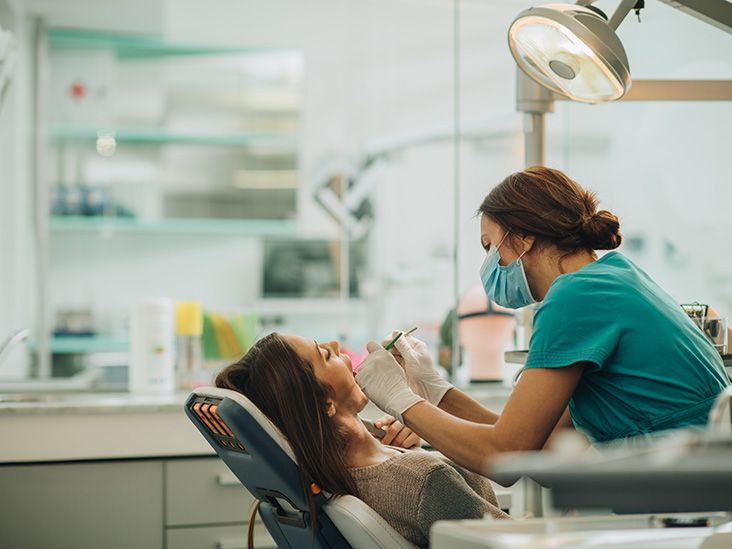Common Concerns About Oral Veneers Addressed
Oral veneers have actually ended up being a significantly in-demand option for those aiming to enhance their smiles, yet many individuals remain unpredictable regarding different facets of their usage. Key concerns commonly emerge relating to the application procedure, long life, and potential dangers related to these cosmetic improvements. In addition, the difference between porcelain and composite veneers can considerably influence one's option. As we check out these typical queries, it ends up being essential to think about not just the advantages but also the ramifications of deciding for oral veneers in search of a more certain look. What factors should one weigh prior to making such a choice?
What Are Dental Veneers?
Oral veneers are slim, custom-made coverings crafted from porcelain or composite material that are developed to cover the front surface of teeth. These dental prosthetics serve both useful and aesthetic objectives, supplying a service for various dental blemishes, including discoloration, chips, gaps, and imbalance. By sticking to the teeth, veneers can dramatically boost the overall appearance of a smile, producing a more uniform and eye-catching look.
Porcelain veneers are particularly preferred for their natural clarity and discolor resistance, making them a suitable selection for people seeking lasting results. On the other hand, composite resin veneers are normally less pricey and can be applied in a single browse through, yet they might not supply the very same sturdiness as porcelain alternatives.
The choice to go with dental veneers usually originates from a wish for aesthetic enhancement, but people need to also take into consideration factors such as the longevity of the product, upkeep requirements, and the prospective demand for tooth decrease (Dental Veneers). Ultimately, dental veneers stand for a functional and effective service for attaining a radiant smile, dealing with private aesthetic demands while advertising confidence and self-worth
How Are Veneers Applied?
The application process for veneers calls for cautious planning and accuracy to guarantee optimum results. The procedure normally begins with a detailed appointment, where the dental expert evaluates the client's oral health and wellness, reviews desired end results, and determines the suitable kind of veneers, whether porcelain or composite resin.
As soon as the therapy plan is developed, the dentist prepares the teeth by eliminating a slim layer of enamel, normally concerning 0.5 mm to 1 mm, to suit the veneer. This step is vital as it ensures a proper fit and stops the veneers from appearing cumbersome - Porcelain Veneers Washington DC. After preparation, impacts of the teeth are taken to produce custom veneers that match the person's one-of-a-kind oral framework and aesthetic choices
While the permanent veneers are being produced in a dental laboratory, short-lived veneers may be placed to secure the prepared teeth. When the permanent veneers are prepared, the dentist will very carefully bond them to the teeth using a strong dental adhesive. Final adjustments are made to make sure proper positioning and attack, complied with by brightening for an all-natural appearance. The process culminates in a follow-up consultation to check the veneers' fit and the client's complete satisfaction with their new smile.
What Are the Perks?

In addition, veneers you can try this out are known for their longevity and resistance to discoloring contrasted to natural teeth. Made from top quality materials such as porcelain or composite resin, they can keep their appearance for many years with proper treatment. This longevity makes them a sensible investment in one's dental appearance.
Along with aesthetic improvements, veneers can likewise add to improved dental health and wellness. By covering damaged or weakened teeth, they can give additional support and defense, helping to avoid more decay or degeneration. This protective element can reduce the demand for a lot more comprehensive dental procedures in the future.

Just How Lengthy Do They Last?
With correct care and upkeep, dental veneers can last anywhere from 10 to 15 years, making them a durable remedy for boosting one's smile. The longevity of veneers greatly depends on the material utilized, the high quality of the first positioning, and the client's adherence to oral health methods.
Porcelain veneers are recognized for their resilience and resistance to staining, normally lasting closer to the 15-year mark when looked after appropriately. Composite veneers, while much more budget friendly, might call for substitute sooner, often within 5 to 10 years because of their susceptibility to wear and discoloration.

Furthermore, wearing a mouthguard throughout sports or nighttime can provide extra security. Eventually, while veneers offer a considerable visual improvement, their long life is substantially influenced by the commitment to appropriate oral treatment and regular assessments with an oral specialist.
Are There Any Kind Of Threats?
Taking into consideration the transformative effects of dental veneers, it is essential to acknowledge the potential risks linked with their application. While veneers can improve the appearance of teeth, the treatment includes the removal of a thin layer of enamel, which advice can boost tooth level of sensitivity and vulnerability to decay.
One considerable risk is the opportunity of inappropriate placement or suitable, bring about pain, bite misalignment, or perhaps damage to the underlying tooth structure. In addition, if the veneers are not maintained effectively, they can become stained or damaged gradually, necessitating replacement.
Clients may additionally experience allergic responses to the products utilized in the veneers, especially if they have level of sensitivities to certain dental compounds. While veneers are resilient, they are not unbreakable; too much force from grinding or squeezing can lead to cracks.
It is essential for clients to speak with a qualified dental professional to review their private threats and to follow aftercare instructions faithfully. By understanding these risks, patients can make educated choices concerning their oral veneer treatment and ensure the durability and success of their improvements.
Final Thought
In recap, oral veneers represent a beneficial cosmetic service for improving smiles, with considerations regarding their application, advantages, longevity, and connected dangers. Their performance is affected by variables such as the choice of product, with porcelain offering remarkable resilience compared to composite options. Appropriate care and upkeep are necessary to optimize the life expectancy of veneers. Inevitably, informed decision-making concerning oral veneers can lead internet to satisfactory aesthetic results and boosted oral health and wellness.
Dental veneers are thin, custom-made shells crafted from porcelain or composite resin that are developed to cover the front surface of teeth. After prep work, perceptions of the teeth are taken to create custom veneers that match the individual's distinct dental framework and visual preferences.
While the long-term veneers are being produced in an oral research laboratory, momentary veneers may be put to protect the prepared teeth. As soon as the long-term veneers are ready, the dental expert will carefully bond them to the teeth utilizing a strong dental adhesive. Eventually, notified decision-making pertaining to oral veneers can lead to satisfactory aesthetic results and boosted oral health.